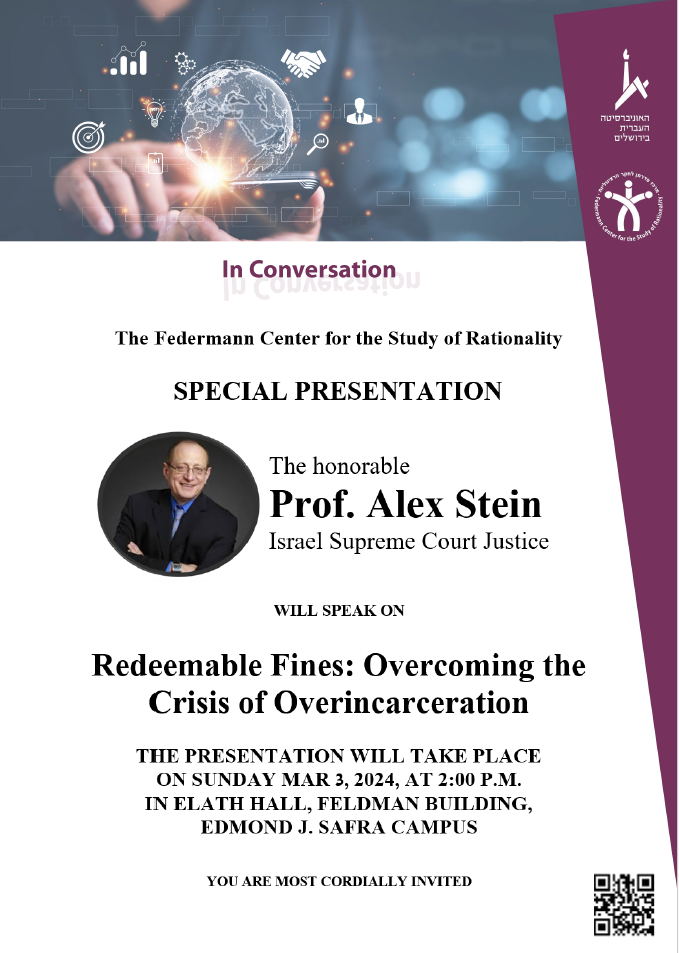
"In Conversation" Series
Lecturer:
The Honorable Prof. Alex Stein, Israel Supreme Court Justice
Title:
Redeemable Fines: Overcoming the Crisis of Overincarceration
Abstract:
We introduce a new mechanism uniquely designed to achieve rehabilitation of offenders and improve the criminal justice system: the redeemable fine. A redeemable fine is a monetary penalty that will be returned to the offender—in installments or, in exceptional cases, in one payment—over a certain period so long as she or he commits no further crimes. Unlike traditional fines, redeemable fines can be structured in a myriad of ways to provide individually tailored optimal rehabilitative incentives for offenders. First, the installment period of the repayment can be short (several months) or long (several years), depending on the characteristics of the offense and the offender. Second, there is the frequency of the payments. The payment intervals can be long, short, intermediate or variable. The sentencing judge will be able to order that the repayments will be made annually, every six months, every single month or, in exceptional cases, in one installment on the successful completion of the rehabilitation. As with traditional fines, the redeemable fine’s amount will correlate with the seriousness of the offender’s misdeed. For these and other reasons, introduction of redeemable fines can dramatically reduce the rates and the costs of incarceration and render the criminal justice system fairer and more humane, while providing meaningful incentives for offenders not to commit further offenses.
Bio:
Alex Stein was born in 1957 in Kishinev, USSR, made Alyiah in 1973, and graduated from the Leo Baeck High School in Haifa. He holds an LL.B. and an LL.M. degree from the Hebrew University of Jerusalem and a Ph.D. from the University of London. During his academic career he served as a Professor of Law at the Hebrew University of Jerusalem Faculty of Law, as well as at Cardozo and Brooklyn Law Schools in New York City, and taught as a Visiting Professor of Law at Harvard, Yale and Columbia law schools, among others. He is the author of five books, two of which are considered path-breaking in the fields of torts and evidence, and eighty articles, many of which have appeared in the world’s leading journals that include Harvard Law Review, Columbia Law Review, University of Pennsylvania Law Review, Michigan Law Review, Virginia Law Review, Georgetown Law Journal, Northwestern University Law Review, Cornell Law Review, Texas Law Review, Vanderbilt Law Review, Oxford Journal of Legal Studies and University of Toronto Law Journal. His areas of expertise include evidence, torts, remedies, legal theory, and economic analysis of law. He was invited to speak in these areas in academic events and judicial conferences across the world and his opinions have been cited by international media outlets that included New York Times, Frankfurter Allgemeine Zeitung, and Nature. He joined the Israel Supreme Court in August 2018.
Location:
Eilan Hall, Feldman Building, Second Floor, Edmond Safra Campus.
Click here to add the "In Conversation" Series to your Google Calendar


